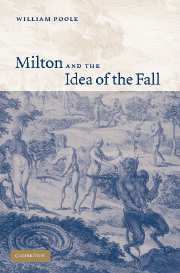Book contents
3 - The quarrel over original sin, 1649–1660
Published online by Cambridge University Press: 10 December 2009
Summary
Throughout the middle years of the seventeenth century original sin was contested as it had never been contested in England before, and many of the disagreements turned on fine details. Thus the rather vague wording of the ninth of the Thirty-Nine Articles on man being ‘very far gone from original righteousness’ was a phrase that could admit of myriad readings, from a superlative understanding of ‘very far’ (‘wholy defiled in all faculties’, as the Westminster Assembly had it) to virtual excision (‘some degree’, as their opponent William Parker revised). In this chapter, in particular, the tendency of theological terminology to wordplay and logical contortion will prove central.
A good initial example is provided by the commentator who essayed to prove that Calvinists were really unwitting Pelagians. As Thomas Pierce, the unpopular President of Magdalen College, Oxford, argued, Pelagians deny original sin. But Calvinists say that Christ died only for the elect. Now, Christ, according to Paul, died for all those dead in Adam. But if these for whom Christ died were only the comparatively small number of the elect, then only a minority died in Adam. Therefore the majority never suffered from original sin. It seems improbable that Pierce believed this: what he was doing was pointing out the kind of logical trickery such types of argumentation permitted. John Gaule complained:
[A]ll the errors which have been about Original Sin, have risen chiefly through want of a perfect Definition, or compleat Description of it, some (and they not the least Hereticks) have contended against all definition; others have been so various in defining, and so incompleat in describing, that they have administered but matter unto more contention.
- Type
- Chapter
- Information
- Milton and the Idea of the Fall , pp. 40 - 57Publisher: Cambridge University PressPrint publication year: 2005

